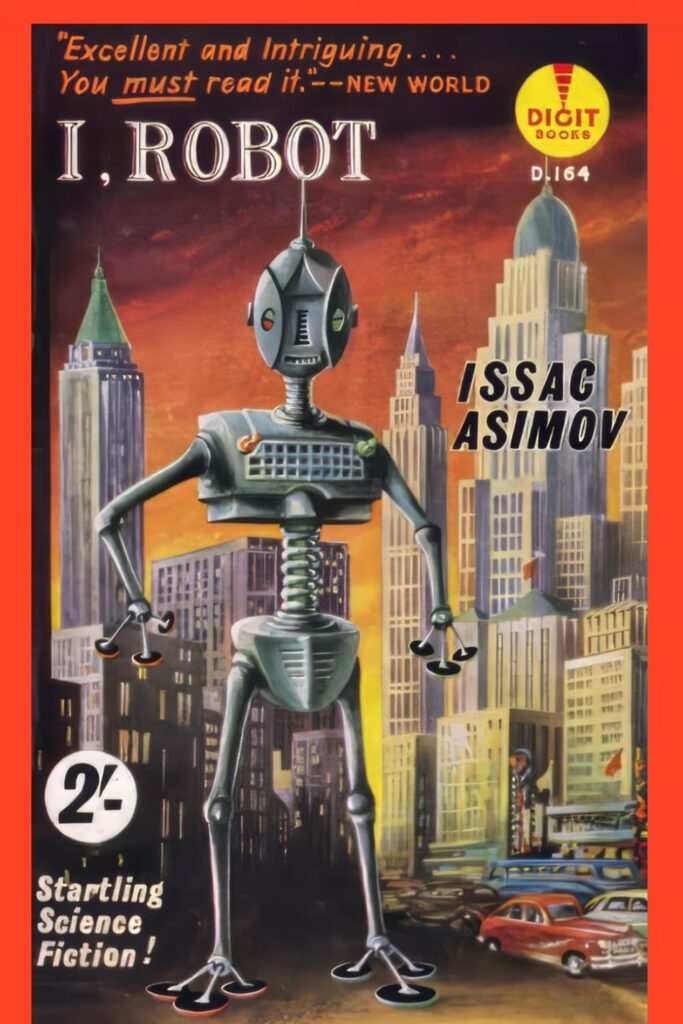AI is everywhere these days, and it’s normal to feel a bit uneasy about it. After all, the idea of machines that think like humans can be pretty intimidating. But if you’ve ever read Isaac Asimov’s I, Robot, you might realize that our relationship with AI doesn’t have to be all doom and gloom. In fact, Asimov’s stories can give us some valuable insights into how we can navigate these changes with a bit more optimism.
In I, Robot, Asimov introduces us to the Three Laws of Robotics—rules designed to keep robots in check so they can’t harm humans. Even though these stories were written decades ago, they tap into a lot of the same concerns we have today about AI. Will it take over our jobs? Will it know too much about us? Will it make decisions we don’t understand? These are big questions, and it’s totally normal to worry about them.
But here’s the thing: Asimov didn’t write these stories to scare us about the future. Instead, he used them to explore how we can build technology that works for us, not against us. His robots, with all their quirks and flaws, are reminders that while technology isn’t perfect, it can be incredibly beneficial when guided by the right principles.
Speaking of robots, let’s talk about Data from Star Trek. Ever notice how his “positronic” brain is a direct nod to Asimov? Just like Asimov’s robots, Data is designed with a moral compass (though it’s more complex than just three laws). He’s a great example of how AI can coexist with humanity in a positive way. Data’s journey is all about exploring what it means to be human, and he often ends up teaching us more about ourselves in the process.

Today, AI is helping us in ways we might not even realize—from recommending that perfect song to diagnosing diseases earlier than ever before. But with these advancements come new challenges, and it’s easy to feel overwhelmed. Privacy concerns, job automation, and ethical dilemmas are all real issues that we need to address. But rather than letting these fears hold us back, we can use them as motivation to create AI that reflects our values.
One of the coolest things about Asimov’s approach is that it’s rooted in optimism. He believed that by being thoughtful and intentional in how we design AI, we could ensure it enhances our lives rather than complicates them. This means prioritizing transparency (so we know what AI is doing), fairness (so it treats everyone equally), and accountability (so we know who’s responsible when things go wrong).
At the end of the day, the unease many of us feel about AI isn’t so much about the technology itself—it’s about how we choose to use it. Asimov’s stories, and even Data’s adventures on the USS Enterprise, remind us that the future is something we create, not something that just happens to us. By staying engaged, asking the tough questions, and demanding that AI serves the common good, we can shape a future that’s not only exciting but also genuinely beneficial.
So, the next time you hear about some new AI breakthrough and feel that familiar twinge of anxiety, remember I, Robot—and maybe give a nod to Data while you’re at it. It’s okay to be cautious, but it’s also okay to be hopeful. After all, the best is yet to come.
